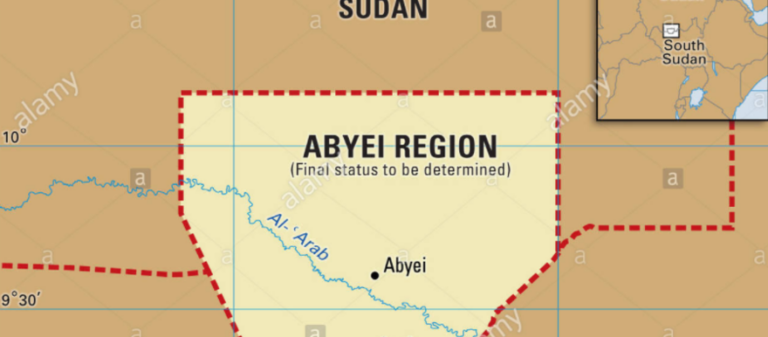South Sudan’s President Salva Kiir has reconstituted a high-level committee tasked with negotiating the final status of the long-disputed, oil-rich Abyei region with Sudan, a move that analysts dismissed as “untimely and ineffective” given the ongoing war in Sudan.
The committee’s revival, announced in a republican order broadcast on state television SSBC on Friday, comes as a senior United Nations official visited the region to discuss peacekeeping operations, which are facing severe financial constraints.
The Abyei area, which straddles the border between Sudan and South Sudan, has been a point of contention since the South’s independence in 2011.
A referendum stipulated in the 2005 Comprehensive Peace Agreement that ended decades of civil war was meant to determine whether Abyei would join Sudan or South Sudan. However, disagreements over who was eligible to vote and recurring violence have stalled a final resolution.
In October 2013, the Ngok Dinka community conducted a unilateral popular referendum, in which the vast majority of people voted to join South Sudan. However, neither Sudan nor South Sudan recognized the plebiscite so far.
According to the order, the new committee will be led by the country’s vice president and chairperson of the Economic Cluster, Dr. Benjamin Bol Mel. The Minister of East African Community Affairs will serve as deputy chair, and the Minister of Presidential Affairs will be the rapporteur.
The team’s mandate includes engaging with the Government of Sudan on Abyei’s final status, presenting South Sudan’s position to regional and international bodies like the African Union and the United Nations, and advising the government on a path forward. The committee is required to submit monthly progress reports directly to President Kiir.
In the announcement, Kiir reaffirmed his government’s commitment to a “peaceful and diplomatic resolution” for Abyei, emphasizing dialogue and cooperation as the foundation for lasting stability between the two nations.
However, the move was met with immediate skepticism from analysts who question its practicality while Sudan is engulfed in a brutal internal conflict between the Sudan Armed Forces (SAF) and the paramilitary Rapid Support Forces (RSF).
Analysts’ views
James Boboya, a policy and political analyst, called the order “largely irrelevant” and said it “does not match the realities on the ground.”
“You cannot make an order to discuss the Abyei crisis when Sudan itself is in active conflict,” Boboya told Radio Tamazuj. He noted that much of the Abyei region is currently under the control of the RSF, while the SAF is positioned far from the area, leaving no clear, stable authority in Khartoum with which to negotiate.
Boboya suggested the committee’s reconstitution was politically motivated. “The president made this order simply to keep some of his appointees busy,” he said. “It’s more about political symbolism than achieving real progress.”
He also criticized the South Sudanese government for its past inaction, pointing to the 2013 unilateral referendum in which residents of Abyei voted overwhelmingly to join South Sudan—a result that Juba never formally advanced to the U.N. or the international community for recognition.
“It’s ironic that after years of ignoring Abyei’s referendum results, the government now wants to create a committee to talk about Abyei,” Boboya added.
While acknowledging the president’s move might be well-intentioned, Boboya concluded that “nothing significant is going to happen for now. Real dialogue about Abyei’s future can only begin when peace finally comes to Sudan.”
UN officials in Abyei
The committee’s formation coincides with a visit to the region by Jean-Pierre Lacroix, the U.N. head of peace operations. According to a U.N. briefing on Friday, Lacroix met with Kiir and other senior officials in Juba to discuss escalating political violence and the impact of a U.N.-wide financial crisis on peacekeeping missions.
Stéphane Dujarric, spokesperson for the U.N. secretary-general, stated that Lacroix informed South Sudanese authorities that the U.N. Mission in South Sudan (UNMISS) and the separate U.N. Interim Security Force for Abyei (UNISFA) will have to cut spending by 15% this financial year.
Lacroix requested the government’s support to help mitigate the impact of these liquidity cuts on the missions’ operations, which include protecting civilians and supporting the peace process.




